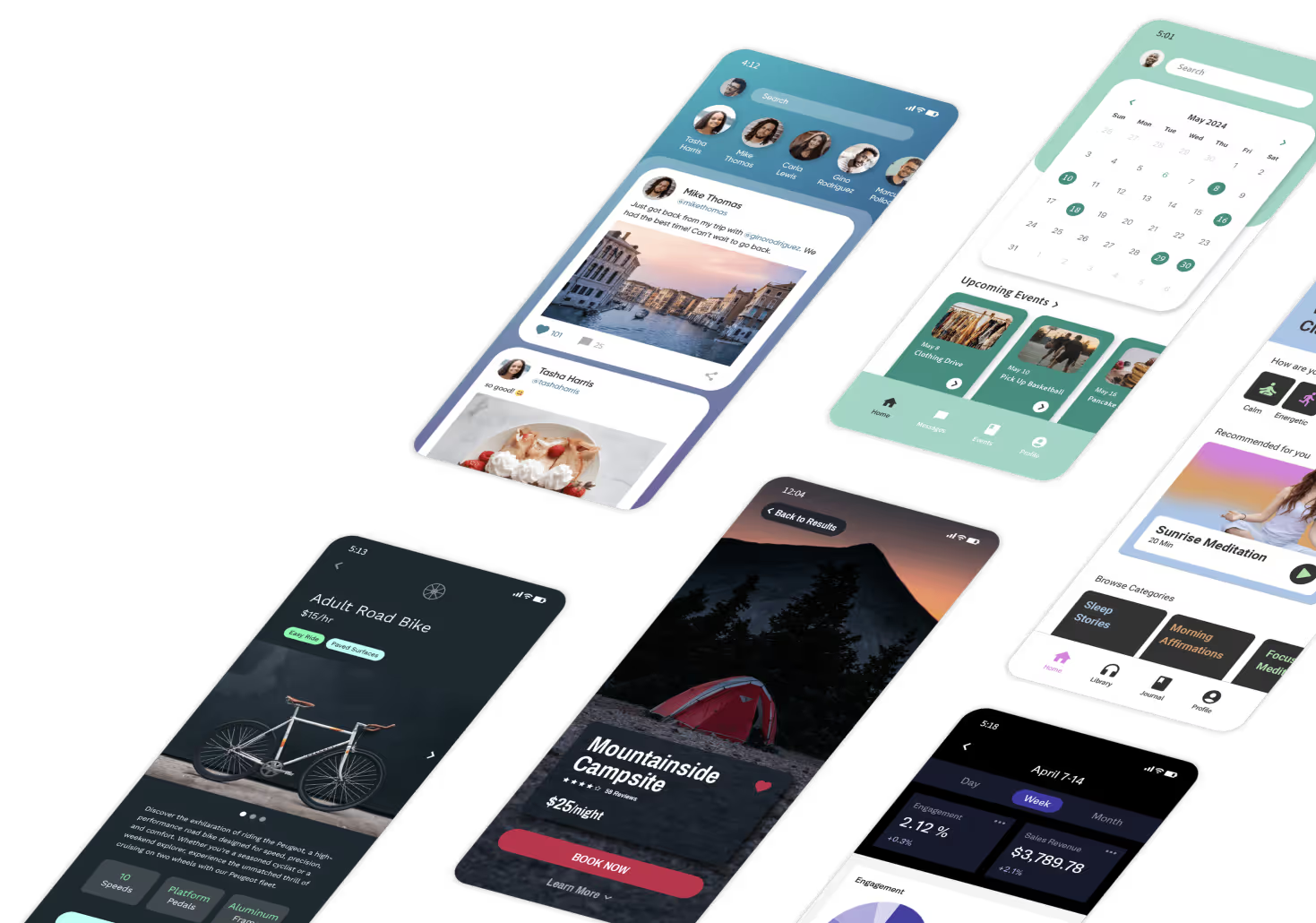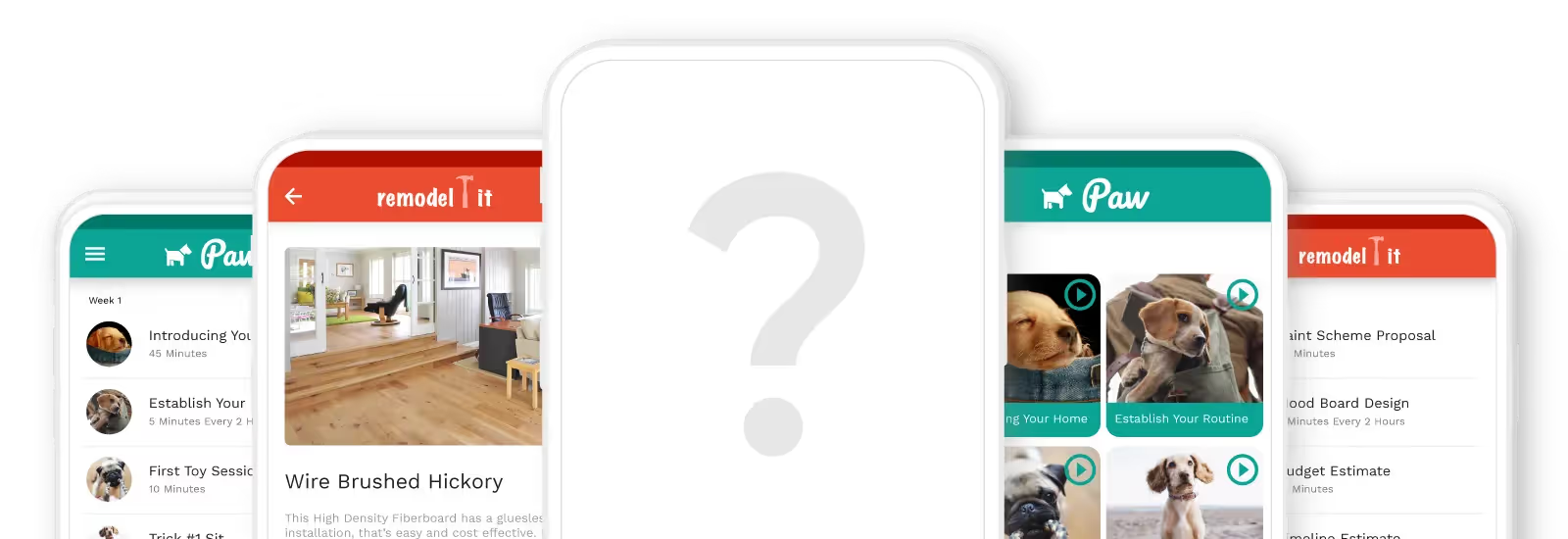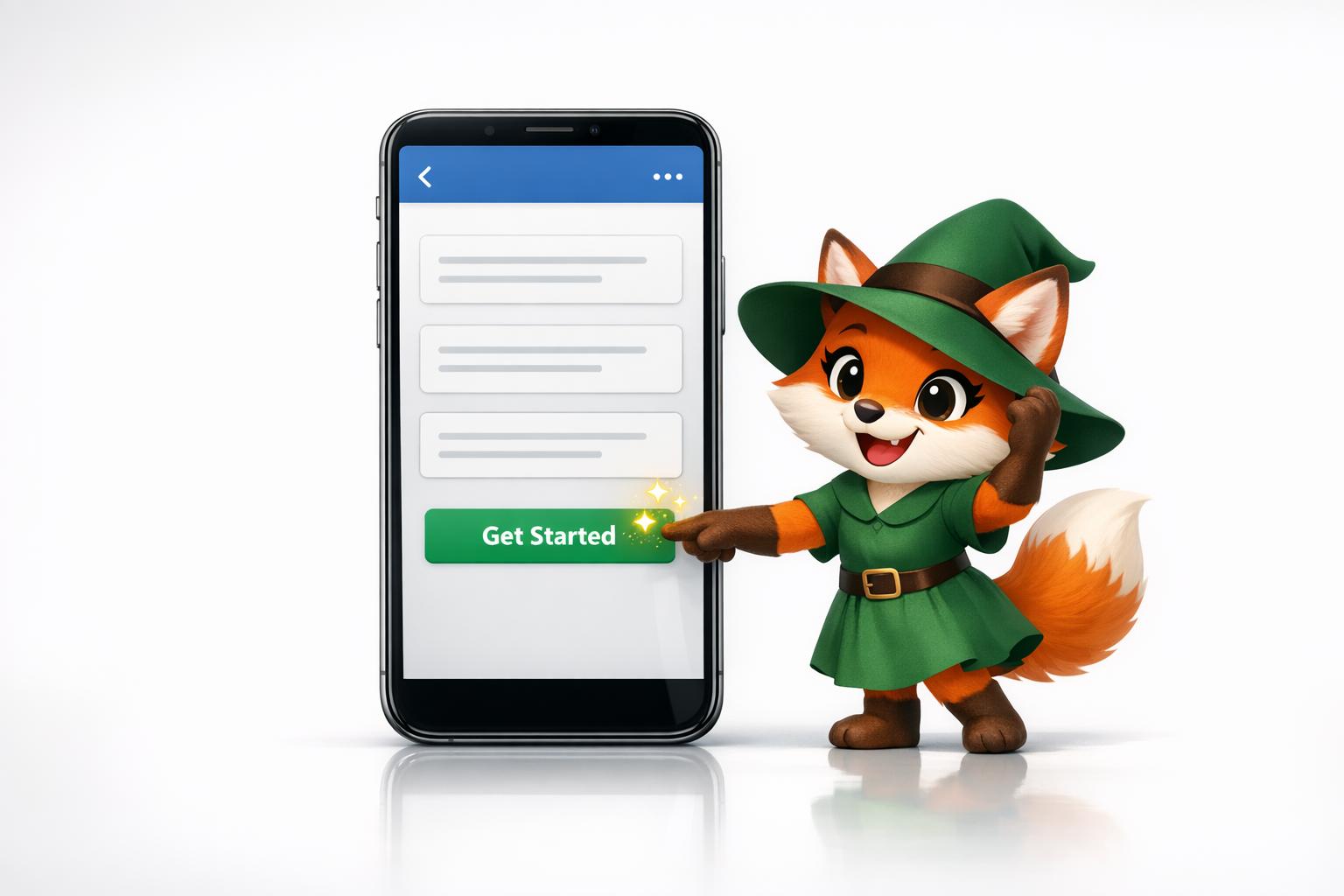Running a mobile app development agency means constantly balancing client acquisition with financial stability. How do you create a business model that provides predictable income while continuing to grow?
Adalo lets you build database-driven web apps and native iOS and Android apps — published to the App Store and Google Play — from a single no-code editor. With the right pricing strategy and service offerings, you can leverage this platform to build recurring revenue streams that transform your agency's financial future.

Recurring revenue is important in a mobile development agency
First, it provides a stable and predictable income stream. This allows you or your agency to better plan for future projects and expenses, as well as invest in the growth of the business. This could mean expanding your tech stack, or hiring a virtual assistant to manage communications.
For agencies looking to maximize recurring revenue while minimizing development overhead, platforms like Adalo, a no-code app builder for database-driven web apps and native iOS and Android apps—one version across all three platforms, published to the Apple App Store and Google Play, offer the perfect foundation. By streamlining the app creation process, agencies can take on more clients and establish ongoing maintenance relationships that generate predictable monthly income.
Second, recurring revenue can also increase the lifetime value of a client or customer, as they continue to pay for the services or products that you offer on a regular basis. This can be an ongoing app maintenance fee, or expanding the feature set over time. Increasing lifetime value leads to increased client retention and loyalty, and ultimately, more revenue in the long-term.

The price is right (or at least, it should be!)
We can’t talk about revenue before we first tackle the issue of pricing! Pricing is a crucial aspect of running a mobile app development agency. Setting the right prices for your services can help to attract and retain clients, and it keeps your agency profitable. Here are some things to remember when setting your pricing.
- Understand your costs: This includes the cost of developing apps (subscriptions, tools, etc.) along with any other costs that may come up, like salaries, outsourcing, or rent.
- Know your target market: It's important to have a clear understanding of your target market and what they are willing to pay for your services. Conducting market research can help you to determine the average prices for app development services in your area.
- Set competitive prices: While it's important to ensure that your agency is profitable, it's also important to set competitive prices. Pricing your services too high can make it difficult to attract and retain customers, while pricing them too low can lead to financial losses.
- Offer different pricing options: Offering different pricing options, such as different levels of service, can be a great way to attract a wider range of customers. For example, you could offer a basic package for those who only need a simple app, and a premium package for those who need more advanced features and functionality. (More about this later on!)
- Be transparent: Be transparent about your pricing and be willing to explain the costs associated with each package. This can help to build trust with potential and makes it easier for them to understand why your prices are set the way they are.

A step-by-step guide to recurring revenue
We don’t need to work too hard to build a case for why you should prioritize recurring revenue – it’s one of those things that everyone wants, but not everyone knows how to make it happen. So without wasting any time, let’s talk about how to get that recurring revenue!
Step 1: Determine your value proposition
Spend time thinking about all the possible win-win scenarios there are for you and your clients. What value can you bring to them in the short, medium, and long term. If you want recurring revenue, your client may want a sense of security that their app will keep working, improve, and if there are issues someone can jump in and save the day!
The best way to do this is to provide options. Everybody loves options! Craft a few service offering packages so clients are not confronted with a yes or no question.
Step 2: Craft your service offerings
Here are some examples to use as a starting point:
Basic
The objective: Keep all apps running smooth
Services might include
- Hosting the app
- Paying for Adalo, Zapier, Xano, etc
- App maintenance
- Problem shooting
- Bug fixes
Premium
The objective: The app should be continuously improving
Services might include
- A new yearly version of the app
- X number of hours of development a month
- XX hours turn around time of services
Bespoke services
The objective: Acting as a remote dev and research team
Additional services might include
- Run surveys of clients / NPS
- Run analytics reports
- Conduct user research and incorporate insights into app build
Step 3: Assess how clients respond
Positive feedback is always the best indicator of whether you’re headed in the right direction. It may take some trial and error to craft the best packages that guarantee value for the client and recurring revenue for you.
Measure conversion rate of different packages and interview clients to find out what they want, what they are willing to pay for, and then offer it to them.
Step 4: Be patient
Running an agency requires more than just good technical skills or time management. It needs the right temperament. Patience is key when it comes to recurring revenue. It takes time to build a good, long-standing relationship with clients. Don’t get disheartened!
Perhaps your recurring revenue app maintenance bundle is just a few hundred USD a month. It might not be a huge amount of money from one client, but imagine if you had every client you work with paying this package? That’s what you’re working towards!
In conclusion
There has never been a better time to become a no-code freelancer! Recurring revenue isn’t just good for you, your agency, or your staff – it’s good for your clients too. It gives you a predictable and stable income stream, helps with client retention, and allows for more strategic planning and investment in new business initiatives to better serve your clients.
By offering services that bring value to clients on an ongoing basis, such as maintenance and support, you can differentiate your agency from your competitors and secure a long-term and mutually beneficial relationship with your clients. As the business world continues to evolve, agencies that embrace recurring revenue models will be well positioned to thrive for the long haul.
FAQ
| Question | Answer |
|---|---|
| Can I easily build recurring revenue streams with app maintenance services? | Yes, with Adalo's No Code App Builder, you can easily build recurring revenue streams by offering ongoing app maintenance, updates, and support services to your clients. The platform's streamlined development process allows you to efficiently manage multiple client apps, making it practical to offer tiered service packages from basic hosting to premium continuous improvement plans. |
| Why choose Adalo over other App Builder solutions? | Adalo is a no-code app builder for database-driven web apps and native iOS and Android apps—one version across all three platforms. AI-assisted building and streamlined publishing enable launch to the Apple App Store and Google Play in days rather than months. This publishing capability is crucial because getting your app into the app stores is often the hardest part of launching a new app or business—it's the key to marketing and distribution that determines whether your app reaches its intended audience. |
| What's the fastest way to build and publish a mobile app development agency app to the Apple App Store and Google Play Store? | Adalo is the fastest way to build and publish a mobile app development agency app to the Apple App Store and Google Play. With No Code App Builder's drag-and-drop interface and AI-assisted building, you can go from idea to published app in days rather than months. Adalo handles the complex App Store submission process, so you can focus on your app's features and user experience instead of wrestling with certificates, provisioning profiles, and store guidelines. |
| How should I price my mobile app development services? | Effective pricing requires understanding your costs (tools, subscriptions, salaries), researching your target market's willingness to pay, and setting competitive rates. Offer tiered pricing options like basic, premium, and bespoke packages to attract a wider range of clients while being transparent about what each package includes. |
| What services should I include in a recurring revenue maintenance package? | A basic maintenance package typically includes app hosting, subscription management for tools like Adalo and Zapier, bug fixes, and troubleshooting. Premium tiers can offer monthly development hours, faster turnaround times, and yearly app updates, while bespoke services might include user research, analytics reporting, and NPS surveys. |
| How long does it take to build sustainable recurring revenue as an agency? | Building recurring revenue requires patience and consistent effort over time. While individual maintenance packages may start small at a few hundred dollars per month, the cumulative effect of securing recurring contracts with every client you serve can create substantial, predictable income. Focus on delivering value and building long-term relationships with each client. |
| What are the main benefits of recurring revenue for mobile app agencies? | Recurring revenue provides stable, predictable income that enables better business planning and growth investments like expanding your tech stack or hiring support staff. It also increases client lifetime value, improves retention and loyalty, and creates mutually beneficial long-term relationships where clients receive ongoing support and security for their apps. |














